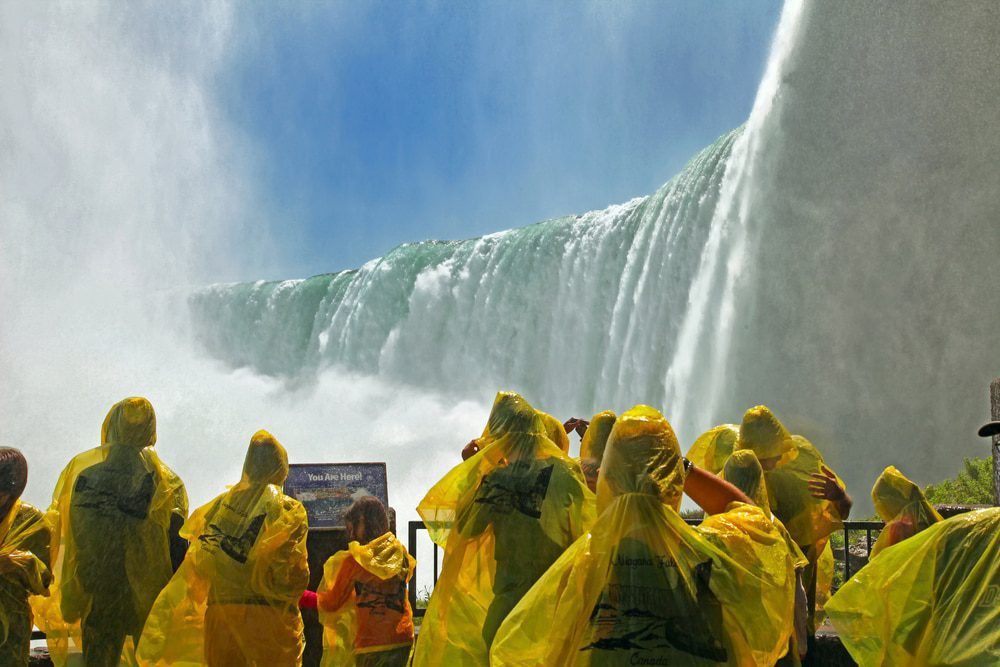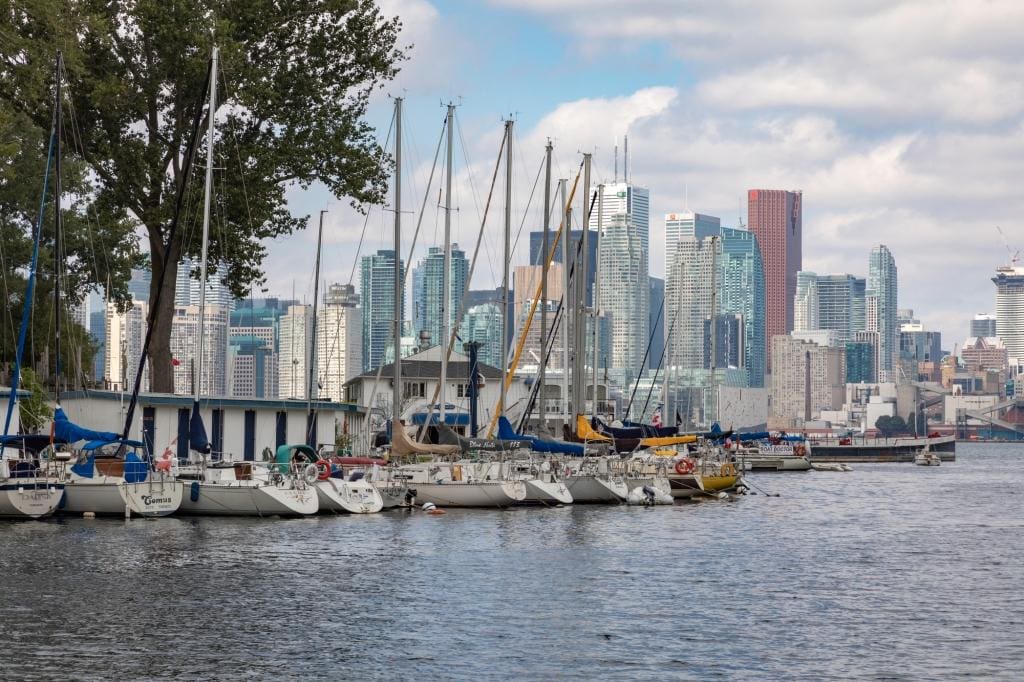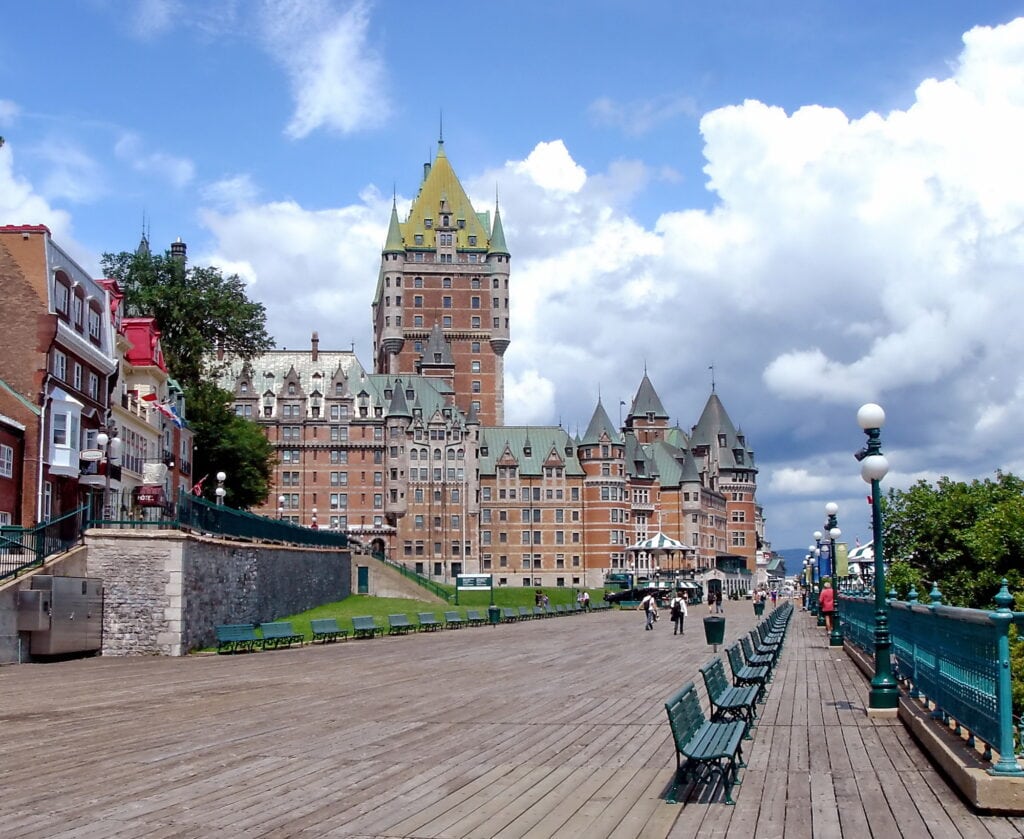Pros and Cons of living in Canada by a Canadian Immigrant
If you are thinking of moving to Canada here is pretty much everything you need to know. I moved to Canada when I was only 8 years old and spent a great deal of my life in Ontario in a place called London. Canada is a great country with a low crime rate and some incredibly beautiful landscapes, mountains and prairies.
Canada is often regarded as one of the best countries in the world to live in, and many believe the roads are paved with gold and opportunities abound but when you move to a new country you have to face many challenges along with the benefits. With its stunning natural beauty, high standard of living, and reputation for being safe and welcoming, Canada attracts many people from around the globe looking for a new place to call home.
Canada has two official languages so if you are moving to Canada and speak either English or French this will help you decide which area to move to – Quebec and Ottawa are the two areas with a dominant French population although the East Coast also has many French speakers.

One of the major advantages of living in Canada is its strong economy and job opportunities but that really depends on where you live in the country. The country has a stable and growing economy, providing residents with a wide range of employment options. Canada is known for its skilled workforce, and many industries are flourishing, including technology, healthcare, and finance. Additionally, the government places a strong emphasis on work-life balance, ensuring that residents can enjoy their personal lives outside of work. Due to stringent laws Canada has very low crime rates and with strict gun control we do not have the mass shootings of the USA.
Another appealing aspect of life in Canada is its universal health care system. Unlike many other countries, healthcare in Canada is publicly funded, meaning that all residents have access to essential medical services at little to no cost. This provides peace of mind for Canadians, knowing that they can receive necessary medical treatment without worrying about excessive bills. This however does not include costs such as prescriptions, eyeglasses and dental work.

Canada is also renowned for its high quality of education. The country has world-class universities and colleges, offering a wide range of academic programs and research opportunities. Whether you are looking to pursue a degree, gain new skills, or enhance your career prospects, Canada’s education system provides ample opportunities for personal growth and development.
However, like any other country, there are also challenges to living in Canada. One of the main drawbacks is the harsh winter weather experienced in many parts of the country. In some areas, temperatures drop well below freezing, making it challenging to go about daily activities.
Additionally, the cost of living in Canada can be quite high, especially in major cities like Toronto and Vancouver. Housing, transportation, and healthcare expenses can add up quickly, making it important to consider financial planning before making the move.

- Pros and Cons of living in Canada by a Canadian Immigrant
- Pros and Cons of living in Canada
- Pros of living in Canada
- High Quality of Life
- Cultural Diversity
- Strong Economy
- Beautiful Natural Environment
- Universal Healthcare
- Access to Education
- Gun Restrictions
- Weather in Canada
- Cons of living in Canada
- Moving to Canada
- High Cost of Living
- Travelling in Canada
- Transportation in Canada
- The Canadian Dollar is Low
- Canadian Visas are expensive
- Taxes in Canada
- Healthcare Access Challenges
Pros and Cons of living in Canada
Pros of living in Canada
Canada has many attractions and overall, living in Canada offers numerous benefits, from a strong economy and quality education to a healthcare system that prioritizes the well-being of its residents. However, it’s essential to weigh these advantages against potential drawbacks, such as the cold weather and high cost of living, to make an informed decision about whether Canada is the right place for you to call home.
Living in Canada has its share of pros and cons, which can vary depending on individual preferences and circumstances. Here are some general advantages and disadvantages of living in Canada:
High Quality of Life
Canada is the second-largest country in the world and it consistently ranks among the top countries in terms of quality of life. It offers a safe and clean environment, access to high-quality healthcare, excellent education systems, and a strong social support network. The people of Canada are peaceful and tolerant, we have great Pride events, laws supporting LGBTQ+ persons, gay marriage and equal opportunities, weed is legal here and all are enshrined in our Constitution and crime in Canada is very low and we have very strong gun laws unlike the United States so very little in the way of gun deaths.

Cultural Diversity
Canada is very famous around the world for its progressive social policies, and of course we are known as the world’s politest people – well we say sorry a lot. Canada is known for its multiculturalism and welcoming attitude towards immigrants. It is a melting pot of different cultures, which leads to a rich and diverse society. This diversity often translates into a wide range of culinary options, festivals, and cultural experiences.
Strong Economy
Canada has a stable and prosperous economy. It boasts a high standard of living, low unemployment rates, and numerous employment opportunities across various sectors. It is particularly attractive for skilled professionals and entrepreneurs.
Beautiful Natural Environment
Canada is one of the most gorgeous countries in the world, renowned for its stunning natural landscapes, including mountains, forests, lakes, and coastline. It offers ample opportunities for outdoor activities like hiking, skiing, camping, and wildlife exploration. Although Canada is known for its snow and winter sports such as hockey it is also a country where we enjoy the hot summers spent boating on the Great Lakes or in British Columbia we endure British style weather with lots of rain but very little snow.

Universal Healthcare
Canada offers a universal health care system for its citizens and permanent residents. Canada has a publicly funded healthcare system that provides essential medical services to all residents. While there may be some challenges in accessing certain specialized services and wait times for non-urgent procedures, overall, it ensures that healthcare is available to everyone.
Access to Education
Canada is home to some of the finest Universities in the world and they are open to all dependent on your grades in Highschool. Our schools are not funded by separate taxes as in the USA and for the most part all schools are provided with the same government funding. In some cases the Catholic School Boards in Canada have differing taxes so you have to notify the local government which school board your child attends and your local city taxes may differ a little.
Gun Restrictions
Gun-control legislation in Canada is considerably more stringent compared to the United States. Acquiring a firearm in Canada is much more challenging as it requires obtaining a license and successfully passing an examination, a requirement that also applies to those aspiring to become security guards or police officers. Interestingly, numerous police officers in Canada do not even carry firearms.
The majority of firearms purchased in Canada are primarily intended for hunting purposes or for protection against wild animals. These factors contribute to making Canada a notably safer place to reside in comparison to the United States.
Weather in Canada
The weather in Canada is not for the faint of heart. With long, cold winters and short, intense summers, it can be a challenging climate to adapt to. If you’re not a fan of snow and ice, you may find the Canadian winters particularly difficult. On the flip side, if you enjoy outdoor winter activities like skiing and snowboarding, Canada is a paradise.
It is difficult to say that there is an average temperature in Canada as the country is so large and the climates are very different depending on the region you choose to live in.

On the east and west coasts, average high temperatures are generally in the low 20s °C (70s °F), while between the coasts, the average summer high temperature ranges from 25 to 30 °C (77 to 86 °F), with temperatures in some interior locations occasionally exceeding 40 °C (104 °F).
Just as an example I lived in what we called the snow belt, tucked between the Great Lakes we spend many winters digging out of huge snowbanks and confronting terrible driving weather. And yet in the summer months we broiled with high humidity with air conditioning a requirement of comfortable living.
Some cities in Canada such as Toronto have entire communities of shops and businesses underground where there are not issues with snow and heat.
Cons of living in Canada
Moving to Canada
Your move to Canada could be very disappointing with regard to employment opportunities. Many jobs are union controlled and require certain qualifications that if not Canadian in origin bar you from entering that profession. For all professions you must be proficient in English and score minimum Canadian Language Benchmark (CLB) level 7. While employment rates are high in major cities in many rural areas where professionals are needed the community supports and issues of transportation for new immigrants can be insurmountable.

The Federal Skilled Worker program can be onerous for medical and professional personnel not trained in a recognized country. I’ve known many teachers, doctors and medical staff who have moved to Canada and are now working in retail and driving taxis because they are unable to obtain their degree information due to civil war and terrorism issues in their home countries, which makes them ineligible. Ottawa has recognized that demand is still very high this year for these highly-skilled workers and so last year the Canadian immigration department included nurse aides and orderlies among the workers who can immigrate to Canada under the Express Entry Federal Skilled Worker (FSW) program.
High Cost of Living
While the cost of living varies across different provinces and cities, certain areas, such as Vancouver and Toronto, can be quite expensive. Housing, particularly in urban centers, can be a significant financial burden. Over the past 5 or 6 years the Canadian economy has boomed in certain locations but the cost of housing has tripled. In my home town rents have gone up from $800 Canadian a month to over $1500 a month for a tiny 1 bedroom basement apartment. In places like Toronto and Vancouver it is much worse.
While wages are generally higher than in many other countries, the cost of housing, groceries, and other essentials can be quite steep. It’s important to have a solid understanding of your financial situation before making the move, as you may need to budget more carefully to make ends meet.

Food has also tripled in Canada and a family of four will spend $1,857.37 a month not including eating out or fast food. Hockey, our national sport is brutally expensive to enroll children in. Having said that we have fabulous delis and an amazing selection of food at farmer’s markets, street food venues, restaurants and cafes.
There are many variables for children wanting to play hockey but here are the basic costs for a 5 year old player.
Helmet- $100
Kit- $150
Mouth Guard- $25
Neck guard- $35
Jock- $30
Skates- $70
Socks-$20
Stick- $40–100
Hockey Bag – $100
Registration around $600 plus $300 for fundraising if you don’t want to take part in sales of fundraising items or volunteer at bingo or raffles.
2 Tournaments per year at around $500 plus cost of hotel and driving

Travelling in Canada
We always tell people that it is more expensive to travel within Canada than it is to head to Europe. Canadian flights are ridiculously expensive which is why many Canadian do staycations, camp or head to their trailers.
Transportation in Canada
Transportation in Canada can be expensive, especially if you live in a remote or rural area. Gas prices are often higher than in other countries, and public transportation may not be as accessible or affordable as you might expect. Buying a car is possible but the cost of insurance on a vehicle can be prohibitive.
The Canadian Dollar is Low
In the past, the value of our currency has consistently been lower compared to the US, UK, and EU. Over the course of the last decade, the average exchange rate has been around USD $1.36 , GBP $1.67 and Euro $1.47. This can make other countries appear expensive by comparison when you dollar doesn’t seem to buy much.

Canadian Visas are expensive
Although Canada is very good about entry for refugees and asylum seekers as an immigrant a work visa can be expensive and the immigration process onerous. The cost of a work visa can be up to $1500 for the application and you have to apply via the Skilled Workers Program.
Taxes in Canada
Canada has a relatively high tax burden, with a progressive tax system that includes federal, provincial, and municipal taxes. While these taxes support social services and infrastructure, they can impact disposable income. For example when shopping none of the ticket prices show the VAT and in Ontario that adds 15% to the cost of goods purchased.
If you plan to work in Canada the tax rates in Ontario range from 5.05% to 13.16% of income and the combined federal and provincial tax rate is between 20.05% and 53.53%.
Healthcare Access Challenges
While Canada’s universal healthcare system ensures basic coverage, there can be challenges in accessing certain specialized services and elective procedures. Long wait times for non-urgent treatments can be long, leading some individuals to seek private healthcare options.
Additionally the various Provinces provide differing healthcare priorities and the expenses covered may be very different. Items such as glasses, dental needs, prescriptions are not covered and believe me prescriptions can be extortionately expensive. It used to cost me well over $150 for a month of anti-biotics.
Moving to Canada certainly has its pros and cons. While the country offers stunning landscapes and a variety of environments, the weather can be challenging and the cost of living high. It’s important to carefully consider these factors before making the decision to move.
It’s important to note that the pros and cons listed here are generalizations, and individual experiences may vary. It’s advisable to consider your personal circumstances, preferences, and priorities when evaluating whether Canada is the right place for you to live.

